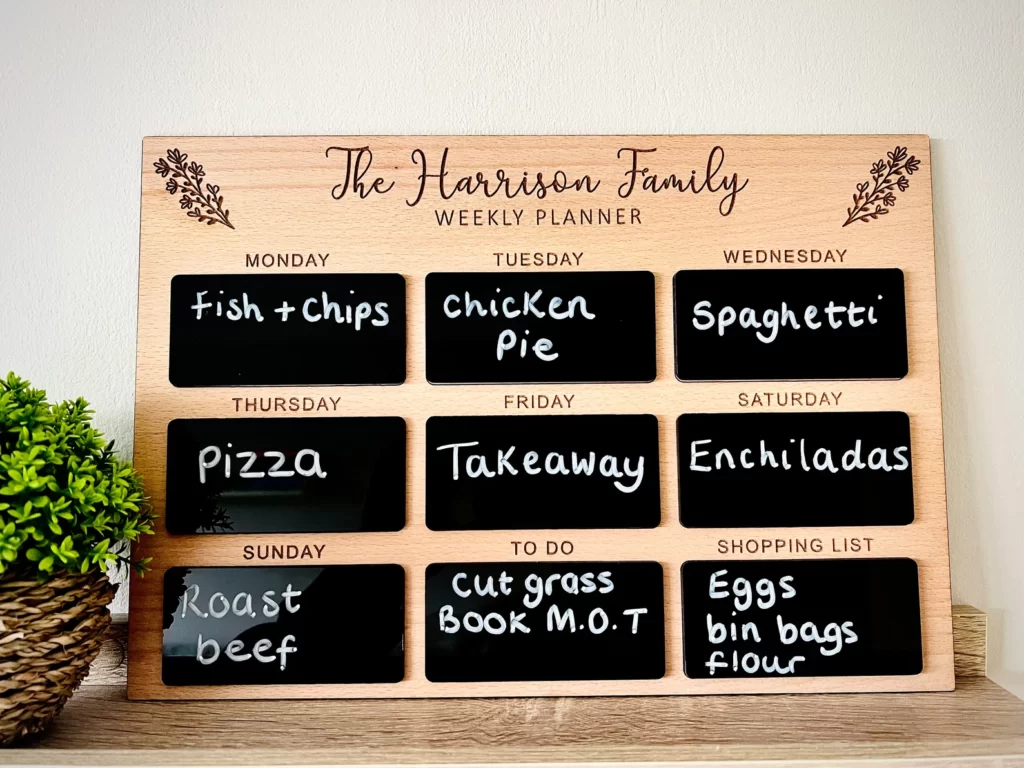10 Ways To Reduce Your Weekly Shopping Bill and Save Money
We are all feeling the pinch and managing your food shop budget effectively is an essential skill that can help you save money and improve your overall financial well-being. With a little planning and some smart shopping strategies, you can cut down on your grocery bill without sacrificing the quality of your meals.
We all have to eat, and for most of us, a significant portion of our monthly budget goes towards groceries. However, there are plenty of ways to trim your food shopping expenses without compromising on the quality of the meals you prepare. In this blog post, we’ll explore ten top tips for saving money on your food shopping without sacrificing taste or nutrition.
1. Plan Your Meals
One of the most effective ways to save money on groceries is by planning your meals ahead of time. Create a weekly meal plan, considering what you already have in your pantry and what’s on sale at your local grocery store. This not only helps you avoid impulse purchases but also reduces food waste.
Grab yourself a family meal planner to keep track of what you are cooking each day and even better this will help you to write a list.
2. Make a Shopping List
Once you’ve planned your meals, make a shopping list and stick to it. Avoid wandering aimlessly through the supermarket, as this can lead to buying items you don’t need. The worst places for this are Aldi and Lidls with their evil tempting middle aisles!!
However having a list keeps you focused and helps you avoid overspending.
3. Use Coupons and Discounts
Take advantage of coupons, loyalty programs, and discounts offered by your grocery store. Many stores have digital coupons you can load onto your loyalty card, making it easy to save money on items you regularly buy.
4. Buy Generic Brands
Generic or shop-brand products are often just as good as name-brand items but come with a lower price tag. Give them a try, and you might be surprised at the quality and savings.
In particular children’s cereals are a great one to try… my little ones will happily eat Tesco choco snaps which are half the price of Coco Pops.
5. Buy in Bulk
For non-perishable items and products you use frequently, buying in bulk can be a smart move. Just be sure to check the unit price to ensure you’re getting a good deal. Also, consider splitting bulk purchases with friends or family to save even more.
6. Avoid Convenience Foods
Pre-packaged and convenience foods are convenient but can be expensive. Cooking from scratch not only saves you money but also allows you to control the ingredients, making your meals healthier.
7. Shop Seasonal and Local
Seasonal produce tends to be fresher and less expensive. Additionally, buying local products can support your community and reduce the environmental impact of transporting food long distances.
8. Reduce Meat Consumption
Meat is often one of the most expensive items in your shopping cart. Consider incorporating more plant-based meals into your diet, which can be both cost-effective and beneficial for your health.
Or if you don’t want to cut out the meat, try reducing it. Next time you cook a bolognese, try halving the mince and bulk out with veggies or lentils instead.
9. Freeze Leftovers
Don’t let leftovers go to waste. Instead, freeze them for future meals. This not only reduces food waste but also saves you from ordering takeout on busy nights. Nothing goes to waste In this house….
10. Keep an Eye on Expiry Dates
When shopping for perishable items, pay attention to expiration dates. Buying items with a longer shelf life can reduce the chances of food going to waste.
Conclusion
Saving money on food shopping doesn’t have to be a daunting task. By implementing these ten tips, you can significantly reduce your grocery expenses while still enjoying delicious and nutritious meals. Planning, budgeting, and making smart choices at the shop are key to stretching your food budget further. Start applying these strategies today, and you’ll see the impact on your savings in no time!










